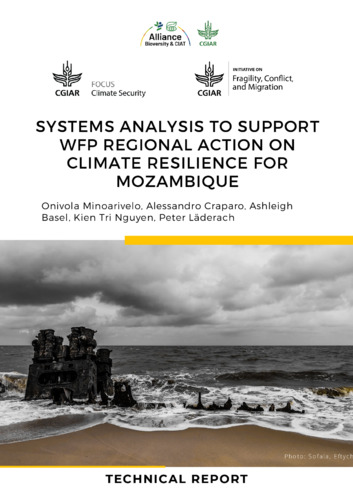Systems analysis to support WFP regional action on climate resilience for Mozambique
For the 1.5 billion people living in fragile and conflict-affected settings,
livelihood challenges are compounded by climate change, unsustainable
resource consumption, poor governance, and weak social cohesion. In
Mozambique, a significant 45% of its inhabitants live below the poverty line,
and a staggering 80% rely on subsistence agriculture, a sector highly
susceptible to climate change. Socio-ecological risks have therefore become
increasingly prevalent along with environmental degradation and conflict.
Within the framework of the Mozambique government’s Area Based
Management Plan, WFP aims to build climate resilient communities through
activities revolving around ecosystem-based adaptation, integrated water
resource management and community-based conservation in the Sofala
province. Through this analysis and technical report, CGIAR is supporting
WFP’s efforts in collaboration with the Gorongosa Restoration Project and
UN Habitat, by providing climate and socio-ecological analyses of the region.
The key focus is around the Urema river sub-basin, a home to the
Gorongosa National Park, located within Sofala province.

